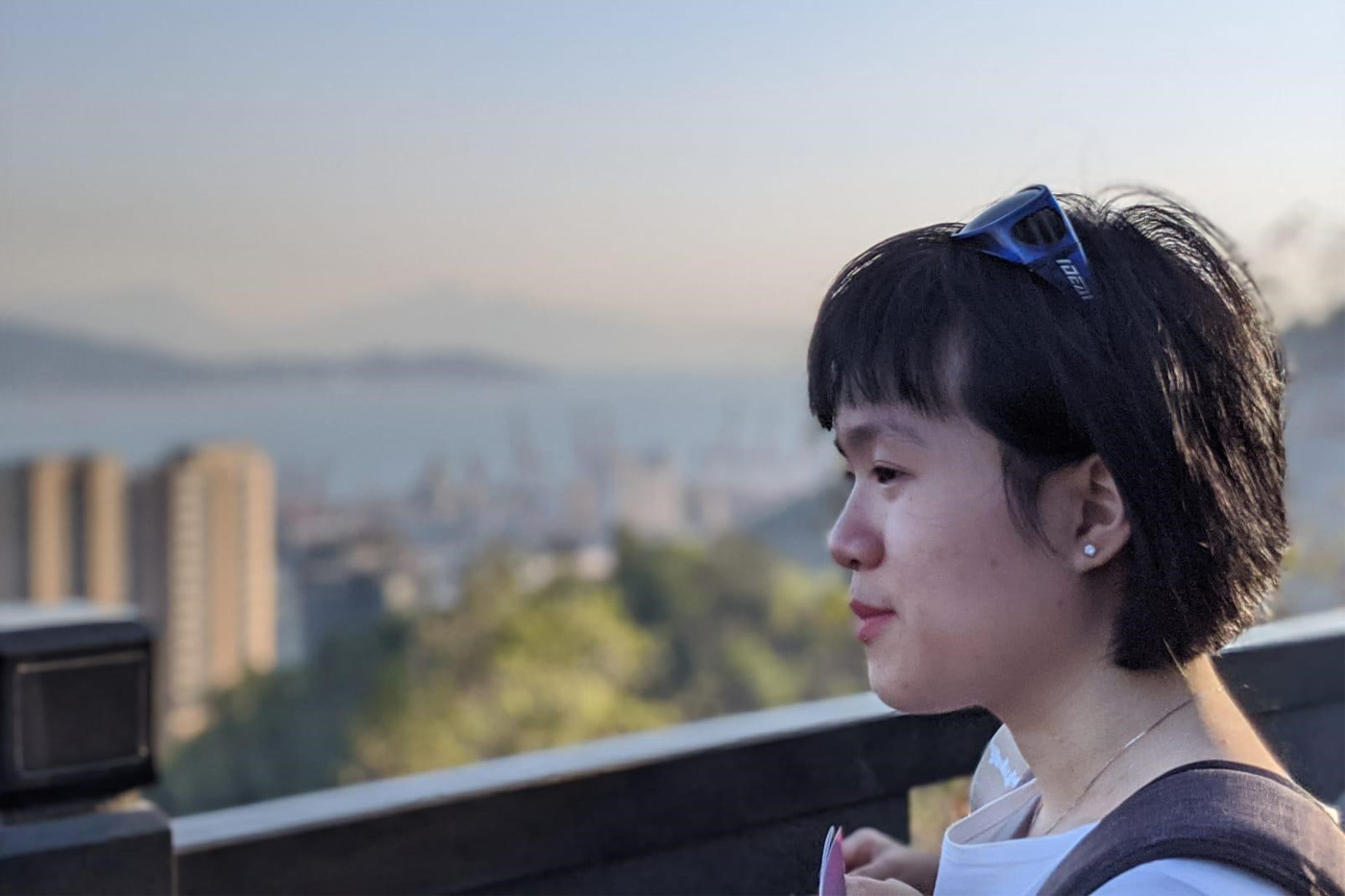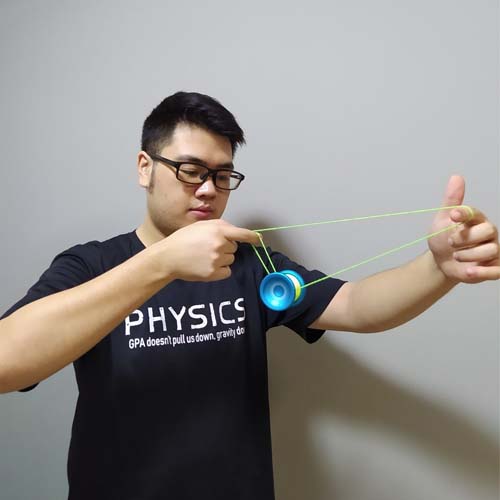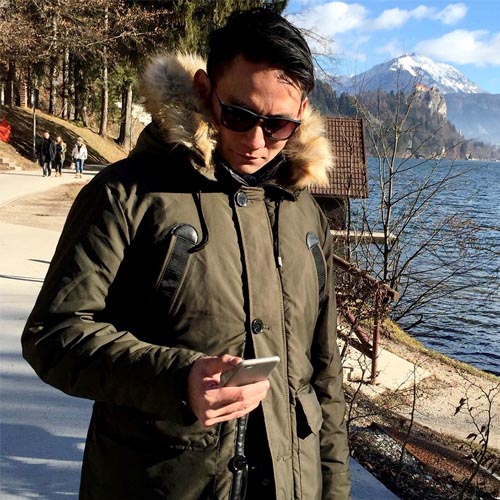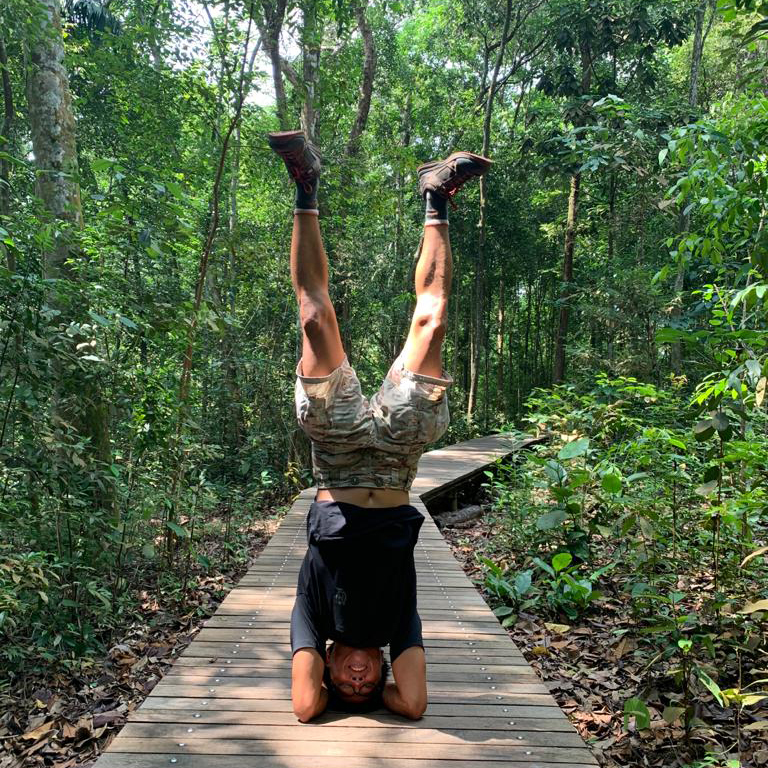Highlights
Meet a CQTian: Debbie Lim Huey Chih
 Debbie enjoys window shopping and going on a food hunt. She also has a great passion for music and could play her favourite songs by ear on the piano.
Debbie enjoys window shopping and going on a food hunt. She also has a great passion for music and could play her favourite songs by ear on the piano.
Who are you?
I am Debbie, a PhD student from the Computer Science group. I am from Malaysia and this is my fourth year in CQT.
How did you end up in CQT?
CQT Principal Investigator Hartmut Klauck was my Final Year Project (FYP) supervisor during my undergraduate studies at the Nanyang Technological University. I was interested in the work and I liked working with him as he is patient and understanding, so I became his PhD student. That is how I joined CQT.
What interested you in quantum computer science?
I would say Hartmut’s sharing and teaching is a big contributor. I started learning about quantum and computer science during my FYP. Back then, Hartmut spent hours telling me about the history and evolution of quantum computing, and he introduced me to the well-known results in the field so I could get a good head start. I was a math major back then and had no knowledge about computer science.
Hartmut would help me understand the fundamental computer science concepts using very simple examples or explanations. I find quantum computing a fascinating field of study, especially in its power in outperforming classical computation models: a quantum circuit operating on only one clean qubit can already tackle tasks believed to be classically hard, and simulating this circuit classically is not an easy task!
After being in this field for a few years, I have gained more exposure to the different facets of computer science research and gradually learnt to appreciate theoretical ideas and the intuition behind them. I am eager to find out the correlations between different computer science problems and see how their results affect each other. There is also still a lot of interesting quantum computing knowledge out there waiting to be discovered.
What are you working on?
I am working on quantum time-space trade-offs. Time and space/memory are among the important resources when performing a computation. Ideally, people would want a fast algorithm which uses as little memory as possible. In this project, we hope to prove a conjecture regarding the lower bound on such a trade-off for a many-output problem.
As a side project, I am working on distributed learning theory and communication complexity. This is about how people, all with imperfect information about something, should communicate effectively to get a more complete view of the thing. In our case, we want to minimise the amount of communication. Consider a list of 1000 patients’ health data with 15 medical indicators and a label stating whether they have cancer or not. If there are five hospitals and these data are being split in a way such that each hospital receives only three indicators and the corresponding label, what is the amount of communication needed for all five hospitals to learn the characterisation of a patient with cancer?
Another little side project of mine is to apply quantum semidefinite programme solvers to problems in finance, such as evaluating the worst-case value at risk.
What is a typical day like for you?
A typical day for me starts with a one-hour workout in the gym, after which I make my way to CQT. When in CQT, I will either be studying, trying to derive some results or having discussions. I end my day with a bonding session with my family and watching some videos to unwind.
What is your favourite aspect of your work?
My favourite aspect of my work would be the flexibility to work anywhere, anytime. I like how CQT is accessible 24/7. I also like having weekly meetings and discussions so that I keep myself motivated and occupied every day. Another favourite aspect of research is that in CQT, we are free to collaborate with anyone within or outside of CQT on any topic, which gives me the opportunity to explore my research interests.
What was the hardest part about getting to where you are now?
The hardest part would be having to learn the basics of theoretical computer science from scratch since I do not have a computer science nor a strong pure math background.
What are your hopes for the future in terms of your work?
I hope to pursue an academic track and hopefully be able to contribute to the scientific community.
What do you enjoy outside of work?
I like window shopping and going on a food hunt! Thanks to COVID-19 and the travel restrictions, I get to explore shopping malls and great food in Singapore with my friends. Occasionally, I will also visit Instagram-worthy places to get some shots for my Instagram account.
If you were not a scientist, you would be…?
I would be a music composer. I have great passion for music and I was also an ardent fan of Taiwan’s King of Mandopop, Jay Chou.
I used to play a lot of pop songs on the piano during my secondary school days. Back then, I listened to the radio a lot and would try to play my favourite songs by ear. It was an accomplishment for me to be able to replicate the notes and reproduce the original piece. However, I do not keep a piano score or recording of the songs I play, so constant practice is needed. On days when I have “cravings” for a piano, I will book a practice studio in University Town and refresh my memory on the songs I used to play ten years ago. If I have more free time, I might consider playing new songs by ear again!
Is there anything else you would like to add?
I love being a part of CQT. I feel a strong sense of belonging here, where everyone is helpful and caring to each other.
Learn more
Related Stories
 | Meet a CQTian: Nguyen Hoang Long September 01 2021 |
 | Meet a CQTian: Mohammad Imran June 28 2021 |
 | Meet a CQTian: Joven Kwek July 26 2021 |






